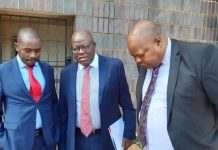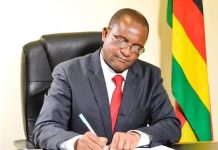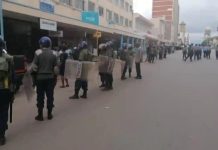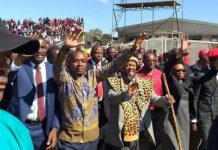THE MDC-Alliance, and the entire legacy of the opposition movement, faces the gravest political challenges it has had to confront since its formation in 1999.
This is the result of a combination of judicial manipulation, political violence, and repression of Zanu-PF over nearly two decades, and the cumulative organisational and democratic weaknesses of the MDC itself.
In the current context, two recent judicial and legislative decisions have set the political agenda for the MDC-Alliance for the foreseeable future. The first was the Supreme Court judgement, SC 56/2020 delivered in March 2020.
In its judgment, the Supreme Court set out that the “essence and objectives of the corrective measures to be implemented by the Party is to restore the status quo ante that prevailed before the irregular and unlawful appointments to the Party presidency took place”.
This in turn would require the “convening of an extraordinary congress to elect a new president following the demise of Dr Tsvangirai”, resulting in the deputy president Thokozani Khupe assuming the role of acting president, until the election of new a president at the extraordinary congress.
The second was the decision by the Speaker of Parliament on May 5, 2020, to recall four MDC-Alliance legislators at the request of the Khupe/Douglas Mwonzora leadership of the MDC-T.
These MPs included Charlton Hwende, Tabitha Khumalo, Prosper Mutseyami and Lillian Timveous, all top political loyalists of the Nelson Chamisa leadership. This was a clear move to weaken the MDC-Alliance and set a threatening precedent for other loyal members of the Alliance.
Both these judicial responses took place in the same month as it was reported that three MDC-Alliance members were abducted, tortured, and sexually abused by members of the ruling party.
The three were: Joanna Mamombe, a Member of Parliament for Harare West constituency and MDC-Alliance Youth secretary for policy and research; Cecilia Chimbiri, the MDC-Alliance Youth Assembly vice chairperson; and Netsai Marova, the MDCAlliance Youth Assembly deputy organising secretary. The police arrested them on May 23 and allegedly facilitated their abduction by security agents of the state.
This incident took place barely a month after an attack on two women, Nokuthula and Ntombizodwa Mpofu, by six ZRP officers in Cowdray Park, Bulawayo, under the cover of the Covid-19 lockdown regulations.
Moreover, this latest round of state repression and violence was also marked by the arrests of several human rights lawyers charged with defeating or obstructing the course of justice during the execution of their professional duties.
Opposition responses
The MDC-Alliance’s response to this onslaught by the state was to immediately suspend the participation of its members in Parliamentary duties, pending further “consultation with the electorate and other stakeholders on the way forward”.
Unfortunately, due to poor consultation and the reliance of legislators on this singular source of income as MPs, several members of Chamisa’s party ignored this directive.
The result was that a month after this resolution was announced, Chamisa changed the earlier resolution and allowed the MPs to return to Parliament. The Alliance has also embarked on a series of legal challenges that are likely to keep it occupied for the foreseeable future. The opposition is in an extremely difficult position and faces a major test in finding a way forward.
Mnangagwa’s strategy
From these recent political interventions by the state, it can be surmised that Mnangagwa’s objective to deconstruct the MDCAlliance is composed of a four-fold strategy.






